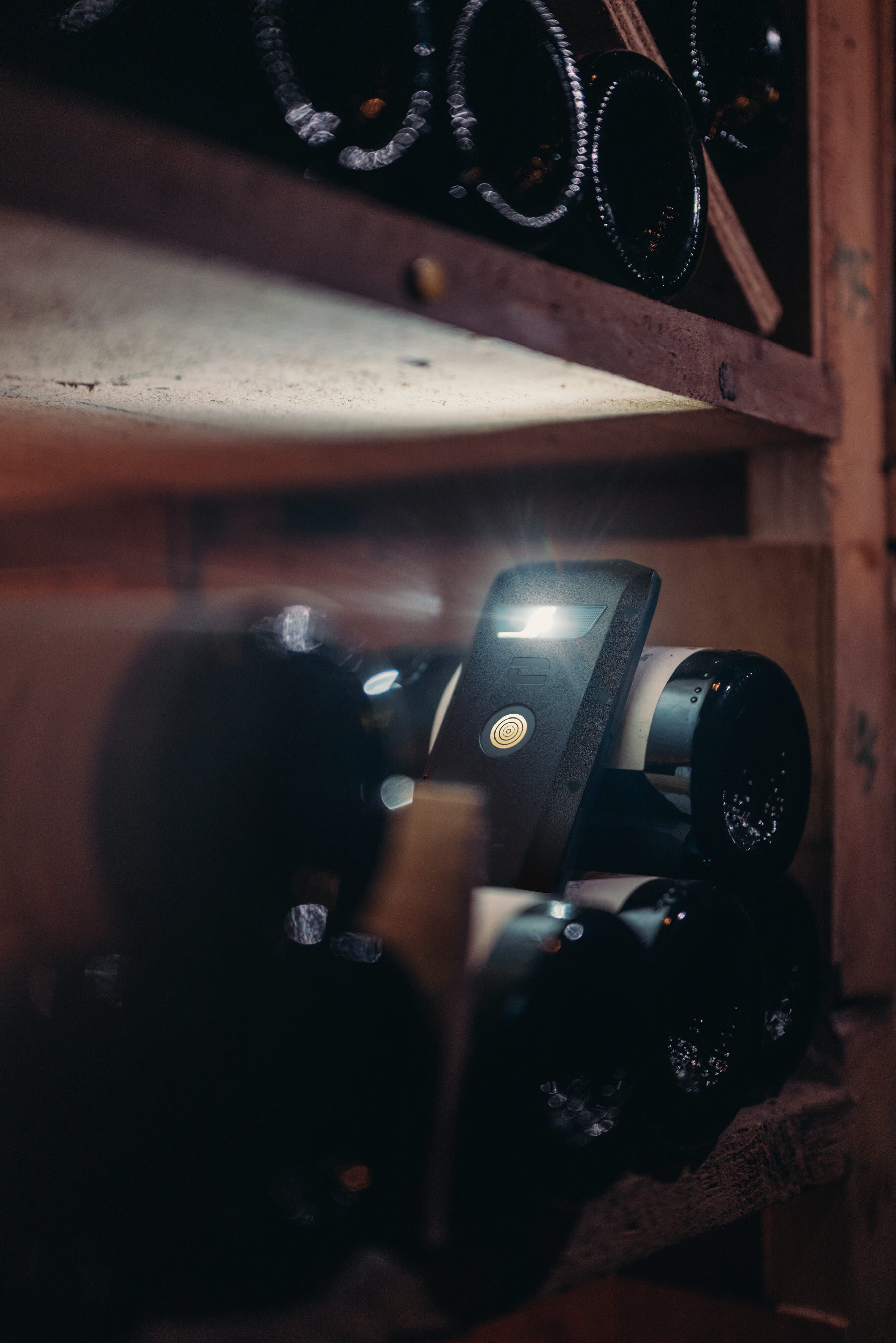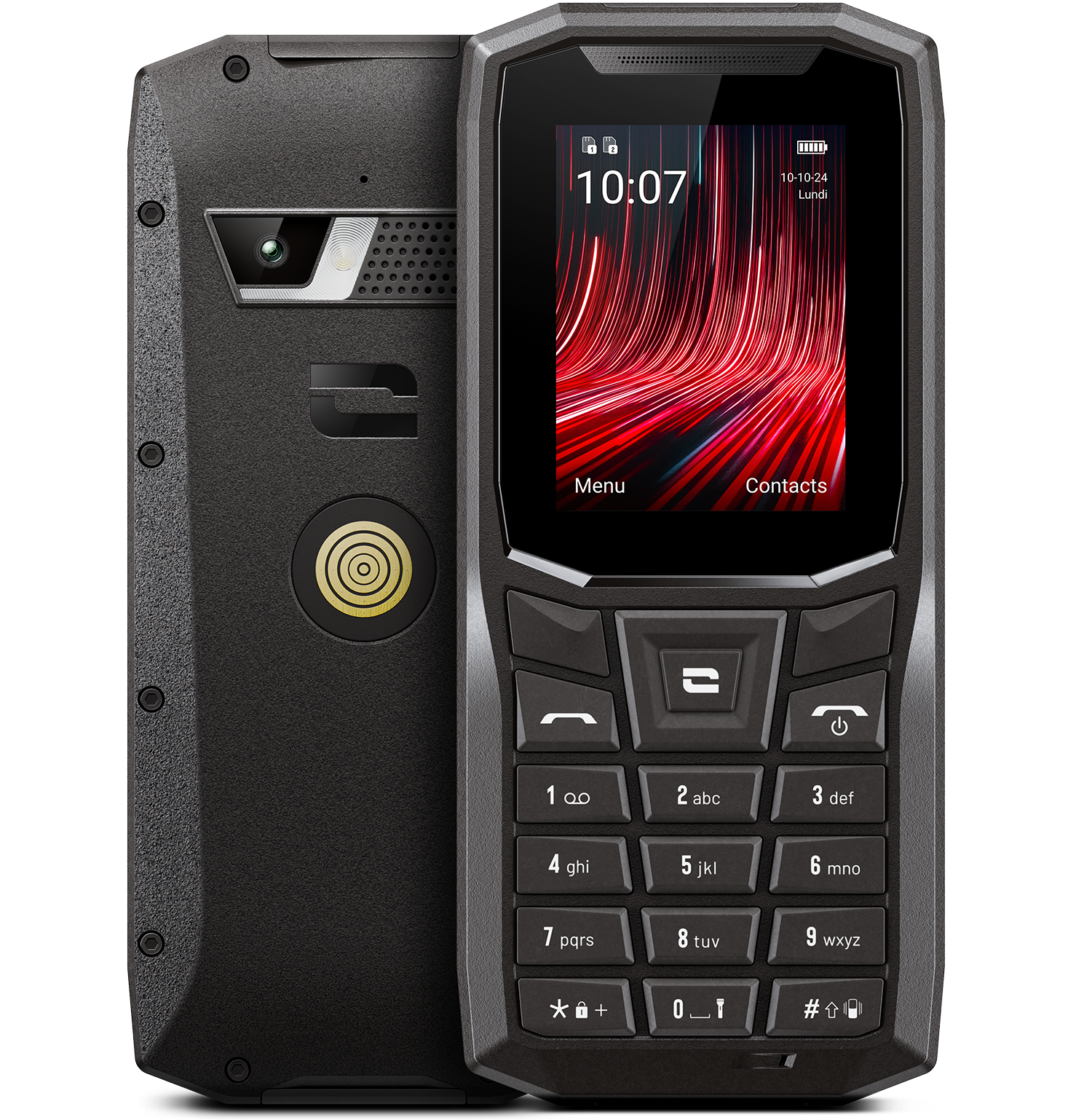Very good customer service, with advice during the phone call on the choice of mobile.
ARNAUD M. on 04/10/2025
Very good quality, and yes I recommend Crosscall, I really like this brand.
MICHELE L. on 02/10/2025
Perfection is not in our world, so I won't give it 5 stars, but let's be honest, I've had a crosscall for 10 years now and I'm very satisfied with it.
FABRICE F. on 09/30/2025
Perfect from ordering to use. The cable-free system is ideal.
DOMINIQUE B. on 09/19/2025
All right, I've already bought 3 phones and a tablet. One of them reconditioned. The whole family is equipped. It's perfect for teenagers who throw their phones in their bags without paying attention. Finally, a solid tablet, to put in the luggage and take on the plane or train, when I'm on a mission! I'm not giving it 5 stars, just because there's no charger, you have to buy one on the side.
MARGOT M. on 07/09/2025
Very good customer service, with advice during the phone call on the choice of mobile.
ARNAUD M. on 04/10/2025
Very good quality, and yes I recommend Crosscall, I really like this brand.
MICHELE L. on 02/10/2025
Perfection is not in our world, so I won't give it 5 stars, but let's be honest, I've had a crosscall for 10 years now and I'm very satisfied with it.
FABRICE F. on 09/30/2025
Perfect from ordering to use. The cable-free system is ideal.
DOMINIQUE B. on 09/19/2025
All right, I've already bought 3 phones and a tablet. One of them reconditioned. The whole family is equipped. It's perfect for teenagers who throw their phones in their bags without paying attention. Finally, a solid tablet, to put in the luggage and take on the plane or train, when I'm on a mission! I'm not giving it 5 stars, just because there's no charger, you have to buy one on the side.
MARGOT M. on 07/09/2025
Very good customer service, with advice during the phone call on the choice of mobile.
ARNAUD M. on 04/10/2025
Very good quality, and yes I recommend Crosscall, I really like this brand.
MICHELE L. on 02/10/2025
Perfection is not in our world, so I won't give it 5 stars, but let's be honest, I've had a crosscall for 10 years now and I'm very satisfied with it.
FABRICE F. on 09/30/2025
Perfect from ordering to use. The cable-free system is ideal.
DOMINIQUE B. on 09/19/2025
All right, I've already bought 3 phones and a tablet. One of them reconditioned. The whole family is equipped. It's perfect for teenagers who throw their phones in their bags without paying attention. Finally, a solid tablet, to put in the luggage and take on the plane or train, when I'm on a mission! I'm not giving it 5 stars, just because there's no charger, you have to buy one on the side.
MARGOT M. on 07/09/2025
Very good customer service, with advice during the phone call on the choice of mobile.
ARNAUD M. on 04/10/2025
Very good quality, and yes I recommend Crosscall, I really like this brand.
MICHELE L. on 02/10/2025
Perfection is not in our world, so I won't give it 5 stars, but let's be honest, I've had a crosscall for 10 years now and I'm very satisfied with it.
FABRICE F. on 09/30/2025
Perfect from ordering to use. The cable-free system is ideal.
DOMINIQUE B. on 09/19/2025
All right, I've already bought 3 phones and a tablet. One of them reconditioned. The whole family is equipped. It's perfect for teenagers who throw their phones in their bags without paying attention. Finally, a solid tablet, to put in the luggage and take on the plane or train, when I'm on a mission! I'm not giving it 5 stars, just because there's no charger, you have to buy one on the side.
MARGOT M. on 07/09/2025
Very good customer service, with advice during the phone call on the choice of mobile.
ARNAUD M. on 04/10/2025
Very good quality, and yes I recommend Crosscall, I really like this brand.
MICHELE L. on 02/10/2025
Perfection is not in our world, so I won't give it 5 stars, but let's be honest, I've had a crosscall for 10 years now and I'm very satisfied with it.
FABRICE F. on 09/30/2025
Perfect from ordering to use. The cable-free system is ideal.
DOMINIQUE B. on 09/19/2025
All right, I've already bought 3 phones and a tablet. One of them reconditioned. The whole family is equipped. It's perfect for teenagers who throw their phones in their bags without paying attention. Finally, a solid tablet, to put in the luggage and take on the plane or train, when I'm on a mission! I'm not giving it 5 stars, just because there's no charger, you have to buy one on the side.
MARGOT M. on 07/09/2025









